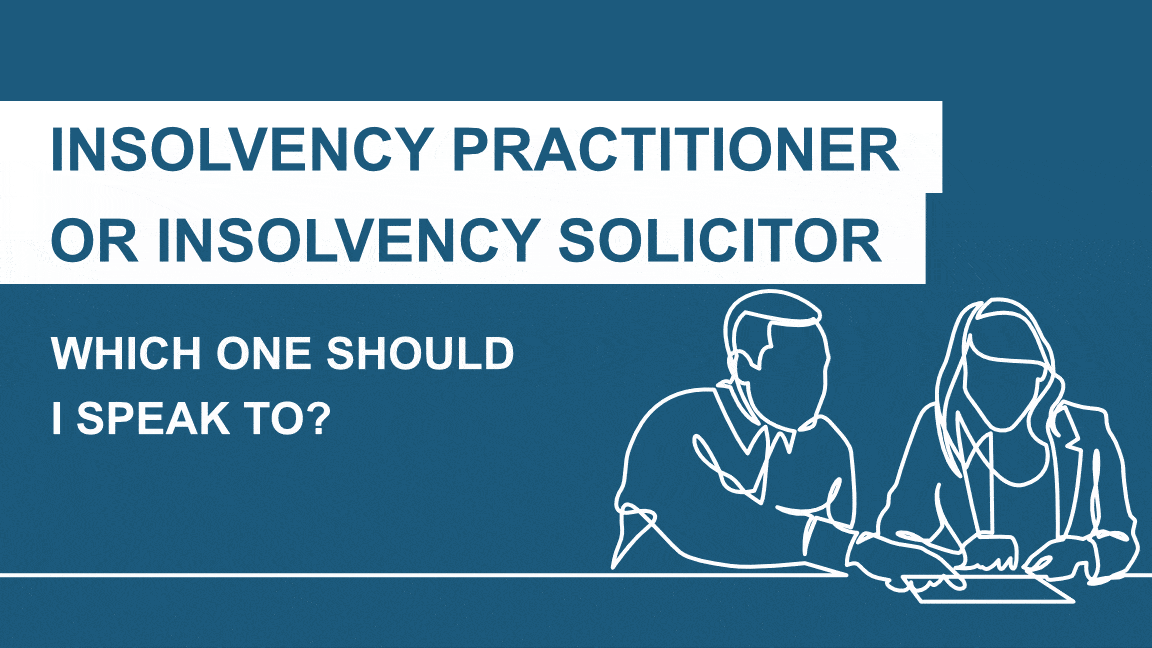The 5-Second Trick For Insolvency Practitioner
Table of Contents4 Simple Techniques For Insolvency Practitioner5 Simple Techniques For Insolvency Practitioner9 Simple Techniques For Insolvency PractitionerAbout Insolvency PractitionerUnknown Facts About Insolvency Practitioner
Whether or not you require to make use of an insolvency professional (IP) to liquidate your company relies on different variables. While involving an insolvency expert for all kinds of liquidation is not a lawful need, doing so can typically improve the procedure and make sure compliance with lawful demands. Liquidating a company is an important choice that comes with substantial consequences.

It is a procedure utilized when a firm does not have any type of financial institutions, or all of their financial institutions can be paid off in complete with legal interest. Comprehending the different kinds of insolvency processes can help you determine the very best course of activity for your business's liquidation or various other formal insolvency treatments itself.
This is required in order to stick to lawful requirements - Insolvency Practitioner. This is since IPs have the necessary qualifications and experience to guarantee that the liquidation procedure is carried out in accordance with all applicable legislations and guidelines. By engaging an accredited bankruptcy expert, you can have tranquility of mind recognizing that your firm's liquidation procedure will be handled skillfully and in compliance with the appropriate legal demands
The Basic Principles Of Insolvency Practitioner
The insolvency practitioner is appointed as a liquidator and is in charge of managing the business and liquidator's debts outstanding liabilities and possessions. This process includes liquidating the business's possessions and distributing the profits to financial institutions. Upon conclusion of the procedure, the firm is removed from the register at Business House.
Falling short to do so can cause individual obligation for the firm or director for the lender's financial obligations. Voluntary liquidation, that includes Financial institutions' Volunteer Liquidation (CVL) and Participants' Volunteer Liquidation (MVL), is started by the company's directors and shareholders when they can no much longer pay their financial obligations. In a CVL, the bankruptcy professional is designated as the liquidator, accountable for handling business financial obligations and all company possessions.
.jpg)
Excitement About Insolvency Practitioner
By evaluating the experience and experience of prospective insolvency specialists, you can make sure that you choose an expert that possesses the required credentials to manage your business's liquidation procedure properly. While insolvency practitioner-led liquidation is frequently one of the most suitable program of activity for business encountering insolvency, there are alternate techniques to consider, such as striking off and partial liquidation.
It's important to review all offered options prior to determining on the following finest remedy or training course of activity for your service. Striking off firms' registers is a more uncomplicated and cost-effective method to close inactive or small firms with no financial debts or assets. To strike off a firm, its name is gotten rid of from the Business House register by submitting form DS01.
Prior to deciding for striking off, it's essential to evaluate the benefits and drawbacks of this method and consider whether it's the ideal selection for your business. Partial liquidation is one more option to bankruptcy practitioner-led liquidation, in which a company sells off certain possessions and obligations while proceeding to run with the staying possessions and liabilities.
An Insolvency Professional will certainly be able to try this out advise you of the most effective course of activity to take and make certain that whatever runs efficiently. Sadly, it is not feasible to liquidate a firm without a liquidator. Designating an authorized bankruptcy practitioner is needed for the process of volunteer liquidation to begin.
How Insolvency Practitioner can Save You Time, Stress, and Money.
It is feasible to close and liquidate your firm without using a liquidator, provided your firm is solvent and you satisfy the qualification demands to liquify or liquidate it. Nevertheless, if your business is financially troubled, you may be required to use a liquidator and begin formal insolvency treatments. Right here are some various other informative go to this web-site short articles concerning firm liquidation in the UK:.
Being in a position where you're unable to pay your firm's creditors is very stressful. In an effort to avoid enhancing the level of financial obligation, several companies try to negotiate straight with their lenders and consent to a casual arrangement. If the debt is fairly small and owed to one lender, and the financial institution is being cooperative, entering right into an casual debt plan is possibly the most effective service, rather than searching the internet for 'an insolvency professional near me'.
On the other hand, if there are several financial institutions and the degree of financial debt is big, financial institutions might not be so eager or cooperative. To avoid liquidation or insolvency, it is much better to work with an insolvency professional to attract up formal propositions and bargain with financial institutions on your part.
Indicators on Insolvency Practitioner You Need To Know
Whilst it is a way to manage financial obligation, there are significant risks involved with my response this kind of debt plan - Insolvency Practitioner. If a creditor is willing to get in into an informal setup (IA) whereby the borrower has agreed to make normal, if reduced, repayments to settle the debt, it's vital to adhere to the arrangement

The lender is within their legal rights to back out of the arrangement and petition the courts for your business to be sold off at any type of time. An official plan that has been suggested by a bankruptcy specialist in your place, and concurred by a lender, provides a much more secure choice.
Comments on “3 Simple Techniques For Insolvency Practitioner”